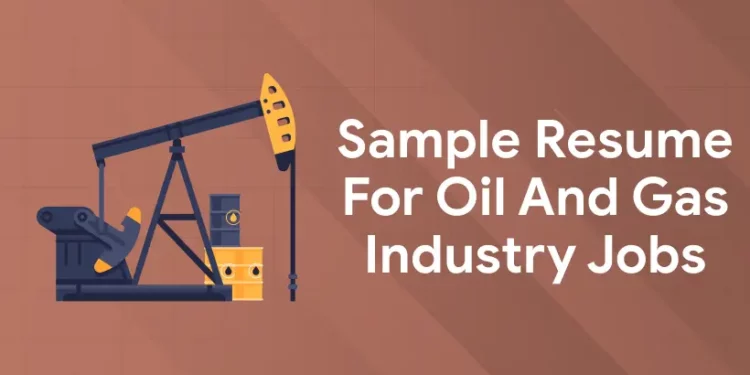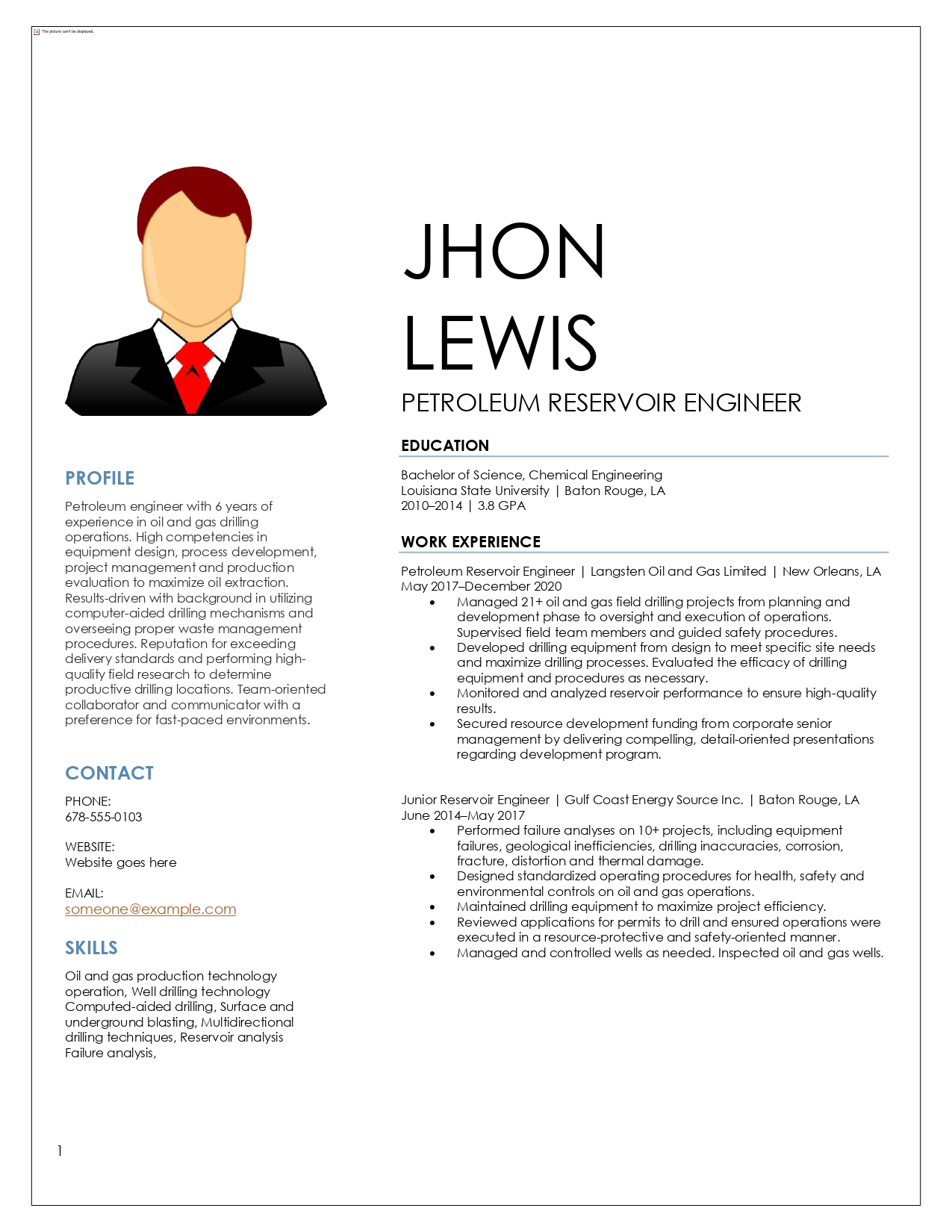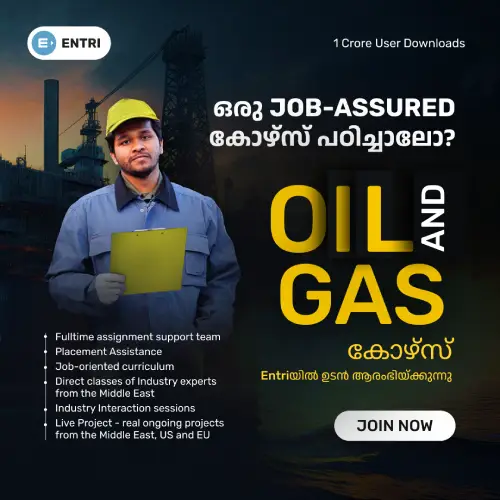Table of Contents
With the chance to make a significant contribution to a very profitable industry, working as an oil and gas professional can be a rewarding career endeavour. If you’re looking for work in the oil and gas business, regardless of your experience level, you need to create a tailored CV that effectively showcases your skills. You may gain an advantage when applying for jobs if your resume highlights your experience and technical skills. This page defines a resume for the oil and gas business, provides writing guidelines, a sample resume, and instructions on how to write one.
Join our Oil and Gas Course! Get Free Demo!
What is an Oil and Gas Industry Resume?
Your oil and gas resume can open doors to new opportunities. Employers will evaluate your resume, which showcases your abilities, experience, and industry expertise, to determine whether you are qualified for a position.
Because the oil and gas sector is so large and intricate, it’s critical that your resume be customised to the particular job for which you are seeking. When applying for a position as a drilling engineer, for instance, you should emphasise your engineering, geology, and problem-solving abilities.
With an oil and gas resume, you can apply for the following other jobs:
- Petroleum engineer
- Energy engineer
- Reservoir engineer
- Production engineer
- Drilling engineer
- Mechanical engineer
- Electrical engineer
- Process engineer
- Geologist
- Geoscientist
- Geophysicist
- Environmental engineer
Make sure your resume is error-free and well-written for whatever job you’re looking for. Obtaining input from a friend, relative, or career counsellor before to submission is also a smart idea.
How to Write an Oil and Gas Industry Resume?
1: What is the primary purpose of a refinery in the oil and gas industry?
Depending on your region, degree of education, experience, and the particular position you’re seeking for, there may be differences in the precise procedures you take while writing your resume as a professional in the oil and gas sector. But even with these contextual considerations, there are a few fundamental principles that should help you craft a strong CV. The following steps will help you create a CV specific to the oil and gas industry:
Look for a simple format
As a specialist in the oil and gas sector, the first thing you should do while writing your resume is to choose a straightforward format. Given that the oil and gas sector is a technical one, you should make an effort to present your qualifications in an organised and clear manner. Use a readable typeface, style elements like bullet lists, 1-inch margins, and basic colours like blue, black, and grey instead of extremely colourful resume templates to achieve this.
In addition, organize your resume into different sections, as shown in the template below, using specific headers in bold typeface. From here, make sure you list your experiences in chronological order with your most recent position appearing first. Using these standard elements will help demonstrate your professionalism and easily showcase your accomplishments in a way that is intelligible to hiring managers and employers.
Review of the job posting
- Make an investigation. Spend some time researching the position and the company you are applying to before you begin writing. This can offer you a sense of the experience and talents they are seeking as well as assist you customise your CV to meet their requirements.
- Emphasise your qualifications and experience. In your CV, be sure to emphasise the most pertinent experiences and abilities you have. Employer-provided application tracking systems (ATS) are likely to contain keywords that you should use while screening resumes.
- Make good use of action verbs. Employing powerful action verbs to describe your experience and expertise can help employers see your work.
- Calculate the outcome. When it’s possible, measure your outcomes. Employers will be able to observe the results of your work using this.
Effective Resume Structure
When you’re ready to start writing your resume, its format should be your first priority. There are three common formats that you can select from: combination, chronological, and functional. Let’s examine each style in more detail to see which best suits your objectives and background. Each one provides a unique approach to deliver your information.
Chronological resume
A chronological resume highlights the previous jobs you have held. Imagine it as a timeline where your career path is shown in reverse chronological order, with your most recent role at the top. For those with a solid background in the sector, this style is ideal because it shows how your experience has developed over time.
Functional resume
In case you are a recent graduate or possess minimal professional experience, a functional resume may be a beneficial choice. This approach emphasises your qualifications and skills over your employment background. It’s a great option for presenting your skills up front, so it’s perfect for people who want to leave a lasting impression right away.
Combination resume
As the name implies, combination resumes incorporate aspects of both functional and chronological resume forms. This lets you highlight your most important abilities in addition to your professional experience. It’s an adaptable option that may be customised to meet the unique requirements of prospective employers. For example, you can deliberately arrange your job history to meet the criteria of four years of experience for a petroleum engineering role.
Join our Oil and Gas Course! Get Free Demo!
List your contact information
After designing the format of your resume, you may start adding all the pertinent details about your education, training, experience, and history. Make sure to include your contact information at the top of your resume, including your name, email address, phone number, address, and any related websites or social media accounts you would like to mention.
Your contact details should be the first thing on your resume and should be spaced out apart from any other information. This is a crucial first consideration because a hiring manager should know exactly how to get in touch with you in the event that they would like to extend an interview invitation. Your contact details should be prominently displayed in addition to being easily accessible.
Include a professional profile
You should include your professional profile just underneath your contact details so that you may make a good first impression. Professionals in the oil and gas sector can highlight their special abilities and set themselves apart from other applicants with comparable technical backgrounds by creating professional profiles. This could be a priceless chance for you to demonstrate to hiring managers your unique qualifications for the position.
Provide a brief summary of your prior experiences, a list of your most significant achievements, and information about any abilities you may have that are applicable to the position you’re applying for in your professional profile. Generally speaking, it is advantageous to showcase your qualifications in your background description. Furthermore, it can be beneficial to use the space in your professional profile to describe any experience you have in less technically oriented domains. Although these abilities might not seem as relevant, they could help you stand out from the competition during the screening process.
Describe your educational background
To get a career in the oil and gas sector, your educational history is crucial. Employers typically seek out applicants who have a relevant degree or diploma, like an engineering degree. Make sure to emphasise your qualifications, the year you graduated, and the name and address of the educational institution you attended, if you have one. Employers will see this as proof that you possess the know-how and abilities needed to be successful in the field.
Provide two or three relevant work experiences
You should start writing about your specific prior experiences as a professional in the oil and gas business once you have compiled your pertinent talents in a logical manner. Try to list two or three relevant professional experiences, starting with the most recent, that would qualify you for the position for which you are seeking. List the specifics of your previous job titles, the companies you worked for, the length of time you were employed there, the responsibilities you had, and the accomplishments you made while serving in that capacity for each experience.
It’s crucial to keep in mind that when you write about your experiences, your background and information should be tailored to demonstrate your suitability for a certain position. This can be achieved by going over the job description in detail and including certain keywords from the description in your resume. This might demonstrate your ability to meet the precise requirements that an employer has set out.
List fundamental skills
Employers are seeking applicants with good project management, communication, time management, critical thinking, leadership, problem-solving, and flexibility abilities in addition to your educational background. Working in the dynamic and ever-changing oil and gas sector requires having all of these skills. Make sure your resume highlights the talents that are relevant to the position you are looking for. Making a good first impression on possible employers will be aided by this. Here is some examples,
- Project management: Demonstrated capacity for overseeing intricate projects from inception to completion, including creating and carrying out project plans, controlling spending and deadlines, and liaising with team members.
- Communication: Strong written and spoken communication abilities, with the capacity to explain complicated technical concepts to audiences who are both technical and non-technical in a clear and succinct manner.
- Time management: Excellent time management abilities, including the capacity to efficiently prioritise work and fulfil deadlines.
- Critical thinking: The capacity to approach challenges analytically and imaginatively.
- Leadership: Demonstrated capacity to inspire and guide groups of people towards success.
- Problem-solving skills: The capacity to recognise issues and find quick, effective solutions.
- Flexibility: The capacity to adjust to change and function well in a hectic setting.
Professional Resume Sample for the Oil and Gas Industry
When preparing a resume, it can be useful to have a visual aid at your fingertips. Here is a sample with a simplified structure that you may use as an oil and gas industry professional to create your own resume by following the preceding steps:
[YOUR NAME]
[youremail@email.com]
[City, State]
[Phone number]PROFESSIONAL PROFILE
[3-5 sentences regarding your professional experience and skills you can offer]TECHNICAL SKILLS
- Skill #1
- Skill #2
- Skill #3
- Skill #4
- Skill #5
PROFESSIONAL EXPERIENCE
[Job title]| [Organization name]| [City, State] [Start date–End date]
- Duties and accomplishments #1
- Duties and accomplishments #1
- Duties and accomplishments #1
[Job title]| [Organization name]| [City, State] [Start date–End date]
- Duties and accomplishments #1
- Duties and accomplishments #1
- Duties and accomplishments #1
EDUCATION
[Type of degree], [Major]
[University name] | [City, State] [Start date]–[End date] | [Grade point average]
PROFESSIONAL AFFILIATIONS
[Name of association]
[Start date]–[End date][Name of association]
[Start date]–[End date]
Join our Oil and Gas Course! Get Free Demo!
Oil and Gas Resume Example
Tips for Crafting Resume for the Oil and Gas Industry
As a professional in the oil and gas sector, there are a few basic resume writing principles you should be aware of. The following three pointers could be useful to you when crafting your resume:
Keep it clear:
Professionals in the oil and gas sector typically limit their resumes to one page. Make an effort to keep your resume to no more than one page. One way to achieve this is by selecting to highlight solely pertinent work experiences. From here, consider utilising action verbs to craft succinct, focused descriptions of your experiences that are organised into a clear, bulleted style.
Highlight your technical expertise:
As a professional in the oil and gas sector, one of the most crucial aspects of your CV is your technical expertise. In order to operate in the oil and gas industry, one must possess advanced skills in specific fields. As a result, be sure to emphasise your technical skills appropriately. You can do this by listing your technical skills first on your resume and then thoughtfully discussing how you used them in prior roles.
Showcase your accomplishments:
Be sure to highlight your prior successes and the quantifiable outcomes you attained in prior roles in your descriptions of your professional experiences. Given the high level of technicality in the oil and gas sector, it’s probable that you have some quantitative data regarding your achievements. Make the most of these numbers to demonstrate to potential employers your level of qualification.
Entri App – Oil And Gas Course
Entri’s Oil and Gas Course is a highly acclaimed program that is tailored to students who aspire to pursue a fulfilling career in the oil and gas industry. It’s perfect for those looking for high-paying employment in India and other nations.
The “Oil and Gas Course” at Entri isn’t like other classes. With this all-inclusive training program, you will get the skills and knowledge necessary to succeed in the exciting world of oil and gas. You’ll get the chance to put your knowledge to use in real-world situations, which will raise the value of your degree and improve your chances of landing a dream job.
Frequently Asked Questions
What is a good objective for oil and gas resume?
Acquire an Entry Level Petroleum Engineer position with (business name) that will let you use your great analytical, problem-solving, and design skills.
How do you list industry experience on a resume?
Provide experiences in reverse chronological sequence, starting with the most recent. Give succinct explanations of your duties that are anchored by powerful verbs. Concentrate on the abilities and qualities you have that you have recognised as critical to your field. Try to include keywords related to your industry.
What are the best job skills to put on a resume?
- Computer proficiency.
- Leadership experience.
- Communication skills.
- Organizational know-how.
- People skills.
- Collaboration talent.
- Problem-solving abilities.
What is the opening statement of a resume?
Even though it should only be a few phrases long, your opening statement should convey the main points of who you are and why you would be a fantastic fit for the position. Make sure your language is assertive and upbeat. Steer clear of jargon and concentrate instead on language that highlight your abilities and capabilities.











